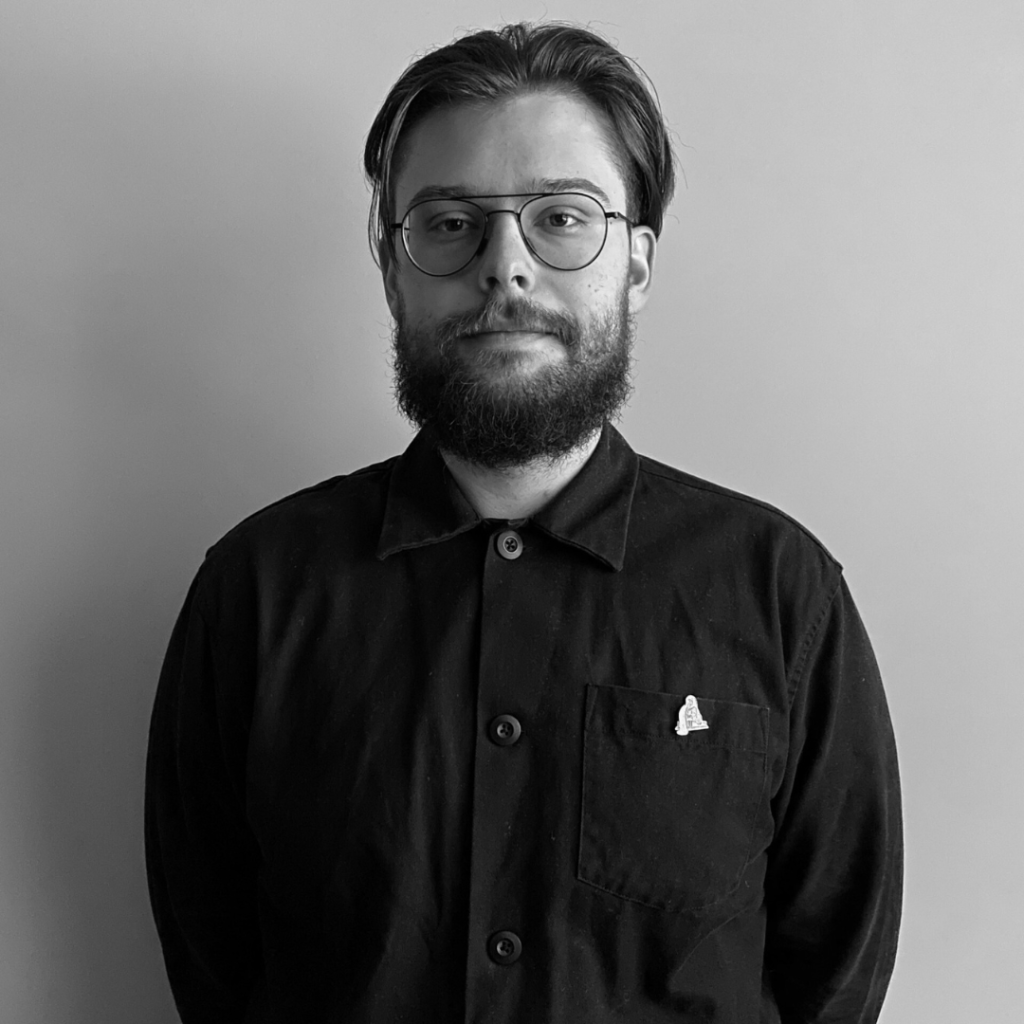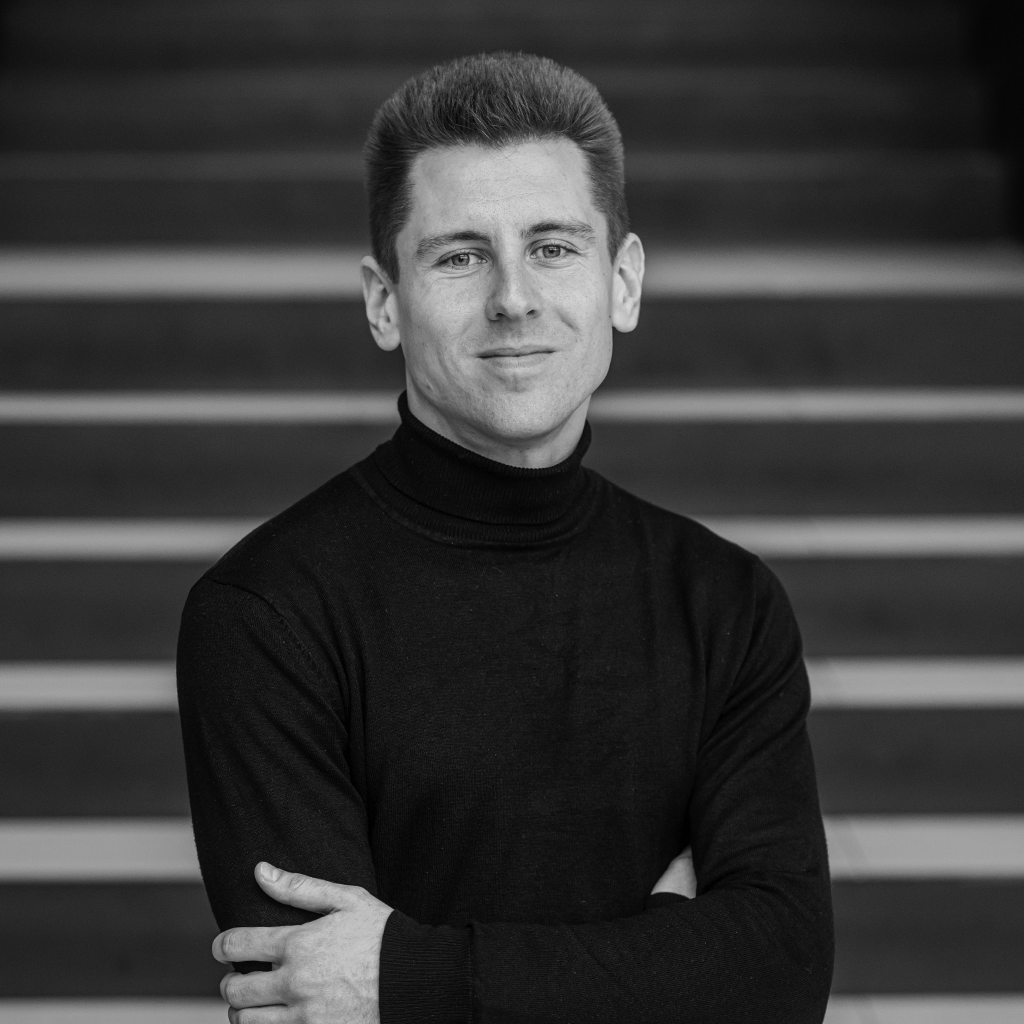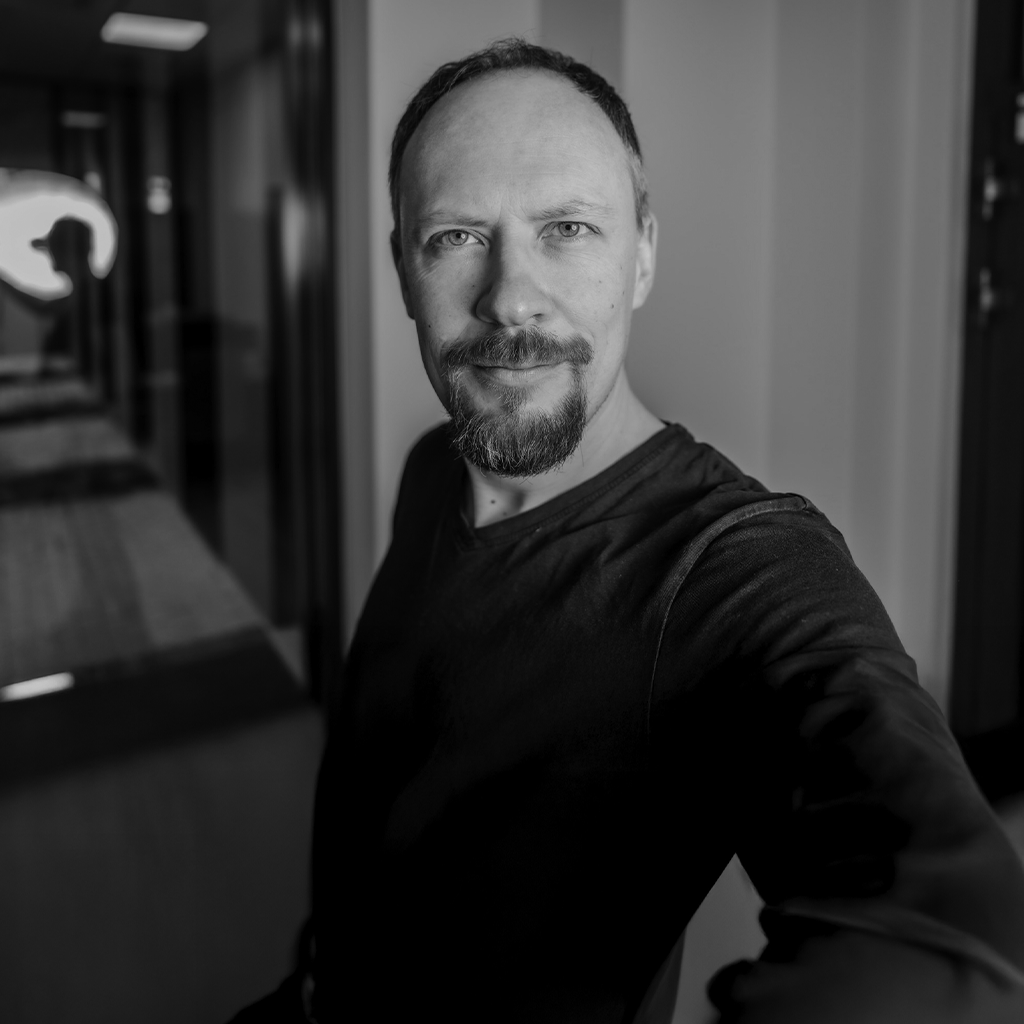“Kaunas Literature Week“ is an international festival of writers and books, held for the first time in 2021 as part of the Kaunas – European Capital of Culture programme.
Lithuania is the most populous Baltic country, and Kaunas, where our festival takes place, is its second-largest city and interwar capital. It is a lovely city, mixing old and modern, red brick Gothic, Bauhaus and Art Deco, housing a unique Čiurlionis gallery devoted to a most outstanding Lithuanian artist, a visionary painter and composer. It is a city with a great past – the centre of Lithuanian and Jewish artistic avant-garde of the first half of the 20th century and cultural resistance to Soviet totalitarianism of the latter half.
The festival takes place every year in May, the most beautiful springtime, revealing the city’s charm. Kaunas has a curious reading public, and since it lies in the heart of the country and has good transport connections, we get a reasonable share of literature lovers from all over Lithuania, including the capital, Vilnius, which is only a hundred kilometres away.
One of the main goals of “Kaunas Literature Week” is to introduce the city and the country’s readers to the panorama of contemporary literature, to help them love it and make it a part of their everyday life. Aesthetic quality and innovation are our main criteria. The festival invites us to discover writers as contemporaries who speak meaningfully, deeply and wittily about the world of today.
The festival’s international dimension broadens readers’ horizons, fosters links between writers, translators and publishers, and serves as a tool for cultural diplomacy. That is why, from the very beginning, we have paid particular attention to our home region, Central and Eastern Europe, which is facing dramatic challenges today. Czeslaw Milosz, a Polish writer who grew up in Lithuania and was born in Šeteniai near Kaunas, is the spiritual patron of the festival.
We put Lithuanian authors on an equal footing with foreign writers. Five winners of the National Culture Prize, as well as other well-known writers and bestselling authors, have already taken part in the festival. Our events offer a unique opportunity to hear the authors’ voices bringing the written pages to life, listen to their insights, delve into the creation process, and participate in lively discussions on key cultural and social issues. We are convinced that the artist and the work of art are best understood and assessed through slow, in-depth conversations and readings. Often, our event becomes the Lithuanian premiere of a book. We strive to represent the diversity of languages and cultures, so we make every effort to hold meetings in the writer’s mother tongue with a translation into Lithuanian.
We want to reduce the distance between the artist and the audience, so we always find space for dialogue, questions from readers and book signings. We cover all genres, but the novel is the most popular with the public. In our programme we prioritise quality over quantity select professional moderators, at the same time addressing the need for localised, community-oriented events.
For this reason, we dedicate a couple of our events to writers from Kaunas and young, up-and-coming talents. After many years in the city, we have revived the book fair “Book Freedom“ for independent publishers and second-hand booksellers; the fusion of the arts and creative experiments are celebrated in the “Night Café”.
In a short time, the Kaunas Literature Week has attracted a large audience and become one of the most important literary events in the country. The festival constantly changes and expands: in autumn 2022, we started the “Šeteniai lectures”, dedicated to a famous world writer. In 2023, together with the Maironis Literature Museum, we initiated the “Literature Week Club”. In 2024, we invited festival guests to a joint podium discussion.
Our events are covered by the most important media outlets in Lithuania – and beyond – and our interviews with writers and texts translated or commissioned for the festival are published.
Organizer’s voices
Laurynas KATKUS:
It happens that when you start to think about the beginning of a project, you can no longer say when and under what circumstances it materialised. But I can tell you when Kaunas Literature Week started, and I can tell you the nearest day – it was 16 February 2019. When I came to Kaunas for the traditional festive visit, I stopped by to see Rūta. We have both studied abroad, we have both attended and participated in a number of contemporary literary events and as we spoke, we found that we were thinking along the same lines – we are sorely lacking such an event in Kaunas, a city that has such an impressive literary history.
It would have remained a beautiful idea if not for Vytautas Magnus University and later the Kaunas European Capital of Culture Programme, which understood and fully supported our initiative. We are very grateful to them.
Looking back, I remember many successful events that sent shivers down my spine – readings by Svetlana Aleksijević, Paolo Giordano, Saulius Šaltenis or Undinė Radzevičiūtė. The most vivid memory, however, is “Loud Words” at the opening of the Kaunas European Capital of Culture in January 2022 – the city and the VMU Great Hall full of people, a unique atmosphere, the voices of Rolandas Rastauskas and of Omar Perez, followed by his magical drum…
Working with the festival was sometimes tricky but never boring. We have reacted to world events, changed and grown. But today, I can repeat the words of our Manifesto: “We believe that great works, intriguing stories, and clever and witty conversations never go out of style.”
Rūta EIDUKEVIČIENĖ:
The first Kaunas Literature Week, which debuted in 2021, was quite a challenge – the preparations took place during the COVID-19 pandemic, so we weren’t sure until the last minute whether the event would take place at all. On the last day of the first festival, we watched anxiously as festival guest Viktor Martinovič flew home on one of the last flights between Vilnius and Minsk. The outbreak of the war in Ukraine also changed the course of the festival. We, the organisers, are learning and growing together with the festival. We are constantly looking for formats that suit and appeal to the audience, and we draw inspiration from events in other countries. We are also excited about the growing number of visitors to the festival and the already established core of the audience, who are constantly interested in what to expect from the festival in the future.
For a city to have its own literary festival is an asset, as it not only enriches its cultural offerings, but also helps to build community and international and local partnerships. This is one of the main ideas behind our festival – to offer a platform for writers from different regions to meet and talk to readers. For a long time, Kaunas has not had writers of this status, authors from such diverse geography and languages, and today, there is undoubtedly much to be happy and proud of.
Acclaims
Kaunas Literature Festival is a real gem, and I loved it immensely!
Kaunas is a very beautiful city, and I feel like I’m in central Europe here. In some ways, Kaunas is even more European than many Finnish cities. On the other hand, it also feels a bit like Finland – maybe because of the same big neighbour?
Kati Hiekkapielto, Finland
I’m freezing on the patio, I’ve been planning to go home for a long time, but I can’t. Because it’s just too much fun.
Agnė Cesiulė, North Athens
That’s good to hear. I’ve wanted to come to Lithuania for a long time. Now, I will be able to do it. And I’m sure it will be just the first of many trips to come.
Paolo Giordano, Italy
An intriguing programme of Literature Week. I don’t know in what way, through what channels the spirit of old Kaunas, the city of literature, powerful in its traditions, the biographies and fates of the classics, comes through. A very warm, understanding, generous audience responding to humour. I felt like coming home.
Danutė Kalinauskaitė, winner of the National Prize for Culture and Art
Yes, I adore the Lithuanian artist Mikalojus Konstantinas Čiurlionis, I’ve loved him since the beginning of time, but I never dreamed that I would be able to see his works.
Mariana Enriquez, Argentina
I have already marked the dates for the fifth Kaunas Literature Week. I hope to get rich again without buying, although I would be happy to buy a festival friend’s ticket.
Kotryna Lingienė, Kaunas Full of Culture, LRT
Participants [as of 2025]
Mantas Adomėnas, Svetlana Aleksievich (Belarus), Jury Andruchovyč (Ukraine), Alhierd Bacharevič (Belarus), Samantha Barendson (France) Bianca Bellova (Czech Republic), Malachi Black (USA), Sandra Bernotaitė, Semion Chanin (Latvia), Daiva Čepauskaitė, Jaryna Čornohuz (Ukraine), Krzysztof Czyżewski (Poland), Gregoire Damon (France), Ieva Dumbrytė, Erika Drungytė, Mariana Enriquez (Argentina), Julia Fiedorczuk (Poland), Jonathan Franzen (USA), Bernardas Gailius, Paolo Giordano (Italy), Vaiva Grainytė, Joel Haahtela (Finland), Katti Hiekapelto (Finland), Nora Ikstena (Latvia), Sabrina Janesch (Germany), Judith Zander (Germany), Vratislav Kadlec (Czech Republic), Danutė Kalinauskaitė, Andris Kalnozols (Latvia), Rimantas Kmita, Saulius Tomas Kondrotas, Halyna Kruk (Ukraine), Eka Kurniawan (Indonesia), Kaori Lai (Taiwan), Gvidas Latakas, Viktor Martinovič (Belarus), Julia Musakovska (Ukraine), Vidas Morkūnas, Paulius Norvila, Audur Ava Olafsdottir (Iceland), Omar Perez (Cuba), Augminas Petronis, Donatas Petrošius, Undinė Radzevičiūtė, Rolandas Rastauskas, Natalie Ronvaux (Luxembourg), Enrika Striogaitė, Ingo Schulze (Germany), Saulius Šaltenis, Antanas Šileika (Canada), Hans Thill (Germany), Jurga Tumasonytė, Indrė Valantinaitė, Artūras Valionis, Dragan Velikič (Serbia), Martina Vidaić (Croatia), Tomas Vyšniauskas, Aistis Žekevičius and others.
Musicians and actors: Aleksandr Aleksandrov (Latvia), BEETA, Martyna Gedvilaitė, Motiejus Ivanauskas, Mc Jabber (UK/Germany), kog leval, Juozas Milašius, Alina Orlova, Linas Rupšlaukis, Sinstation, DJs Smetonos, Evangeline Ūsienė, Edgaras Žemaitis
The evenings and debates were moderated by: Mantas Adomėnas, Sandra Bernotaitė, Neringa Butnoriūtė, Marius Burokas, Virginija Cibarauskė, Ramūnas Čičelis, Neringa Daniulaitienė, Rasa Drazdauskienė, Dainius Gintalas, Evelina Gužauskytė, Vaidas Jauniškis, Jovaras Kelpšas, Žydronė Kolevinskienė, Dalia Kuizinienė, Povilas Venta Kuprys, Kotryna Lingienė, Juta Liutkevičiūtė, Gintautas Mažeikis, Eglė Mikulskaitė, Eglė Murauskaitė, Audrius Ožalas, Ernestas Parulskis, Emilė Pliuščikaitė, Ina Pukelytė, Akvilė Rėklaitytė, Rasa Ruseckienė, Jurgita Staniškytė, Vytenė Saunoriūtė-Muschick, Jurga Tumasonytė, Inga Vidugirytė, Karolis Vyšniauskas, Rytis Zemkauskas, Jūratė Žuolytė and others.
Texts translated especially for the festival by: Vaida Braškytė, Vytas Dekšnys, Vilija Gerulaitienė, Laura Laurušaitė, Vilma Matulevičienė, Kristina Sprindžiūnaitė, Kristina Tamulevičiūtė.
Our sponsors and partners
- Lithuanian Council for Culture
- Kaunas City Municipality
- Vytautas Magnus University
- Kaunas European Capital of Culture 2022
- Goethe Institute in Vilnius
- French Cultural Institute in Lithuania
- Institute of Polish Culture
- Embassy of the Czech Republic
- Esch-Sur-Alzette European Capital of Culture 2022
- Reading Luxembourg
- Prix Laurence
- Novi Sad European Capital of Culture 2022
- Künstlerhaus Edenkoben
- Kaunas Artists’ House
- Maironis Lithuanian Literature Museum
- Kaunas Cultural Centre
- Kaunas Vinco Kudirkos Public Library
- Ąžuolynas Library
- Kaunas Cinema Centre “Romuva”
- Bookstore “Kolibris”
- Kaunas Chamber Theatre
- Lithuanian Museum of History of Education
- Alma littera
- Magazine “Nemunas”
- Culture bar “GODO”
- Volunteer Association “Kultūristai”
Media partners:
- 15min.lt
- LRT
- Kaunas Full of Culture
- Kauno Diena
The festival team
Director: Rūta Eidukevičienė
Dr. Rūta Eidukevičienė is a literary scholar, professor of German studies at VMU. She has interned in the USA, Germany, Italy, and other countries and taught Lithuanian literature and culture courses to students in these countries. Together with her colleagues, she organises international scientific conferences, summer schools, workshops and various cultural events. She was one of the main curators of the Kaunas 2022 programme in the field of literature, curated the Lithuanian-German poetry translation workshop “Neighbouring Poetry – Poets Translating Poets” (Edenkoben, Germany), co-edited the anthology of Lithuanian poetry “Das Lied von Spaziergang” (2024), and has authored more than 50 scientific publications.
Art Director: Laurynas Katkus
Writer and translator, dr. Laurynas Katkus is the author of seven books in Lithuanian and six in German and English. He has translated over ten books of fiction and essays from English, German and Yiddish. Katkus has been a fellow of the Solitude Castle Academy in Germany, the Landis and Gyr Residency in Switzerland, and the International Writing Program at the University of Iowa, the USA, among others. He has participated in numerous literary festivals in Europe and the USA, organised and moderated readings and discussions, and led creative writing workshops.
Communication Coordinator: Tauras Bernotas
Social Media & Website Administrator: Eimantė Korytė
Event Coordinators: Gintarė Navakauskaitė and Eimantė Korytė
Graphic Design: Martynas Švarcas
Photographer: Jonas Petronis
First Communications and Events Coordinator: Neringa Daniulaitienė A.D.







Festival College
- Asta Volungė, cultural activities manager-educator, Kaunas Artists’ House
- Viktoras Bachmetjevas, philosopher, associate professor, VMU
- Sandra Bernotaitė, writer, creative writing mentor
- Deimantė Cibulskienė, Director of Maironis Lithuanian Literature Museum
- Ramūnas Čičelis, writer, literary critic
- Agnė Cesiulė, literary scholar, Maironis Lithuanian Literature Museum employee
- Nomeda Domeikienė, Director of Vincas Kudirka Public Library
- Vaida Gedzevičiūtė, Head of Communication Management Group, Kaunas County Public Library
- Vaiva Grainytė, poet and playwright
- Jovaras Kelpšas, slam poet, event host
- Edgaras Klivis, associate professor at VMU, artistic director of Kaunas National Drama Theatre
- Dalia Kuizinienė, professor at VMU, literary critic
- Audrius Ožalas, literary reviewer, journalist
- Markus Roduner, translator
“Kaunas Literature Week” Manifesto (2021)
We believe that Kaunas needs a literary festival that continues the city’s deep literary traditions and meets today’s cultural ambitions.
We want to show what contemporary Lithuanian and world literature is all about, so we present the most interesting Lithuanian and foreign writers.
It is important to us that the festival focuses on the work of Kaunas and Kaunas-based authors, especially young Kaunas writers and the promotion of their creative potential.
We believe that Kaunas Literature Week should represent the diversity of literary genres and reflect readers’ interests, but not be superficial entertainment.
Our priorities are a thoughtful programme, slow and attentive readings, and sincere encounters where there is always room for dialogue between authors and the public.
It is important for us to become a reliable partner, and we are forging links with other international literary festivals to promote the exchange of ideas and joint initiatives.
We aim to showcase everyone’s valuable contribution to the word culture – whether as a writer, translator, critic or teacher, publishing house, library or bookshop, bookseller or community of readers.
We believe that great works, intriguing stories, and clever and witty conversations never go out of fashion.
We say: Kaunas is a city full of literature!